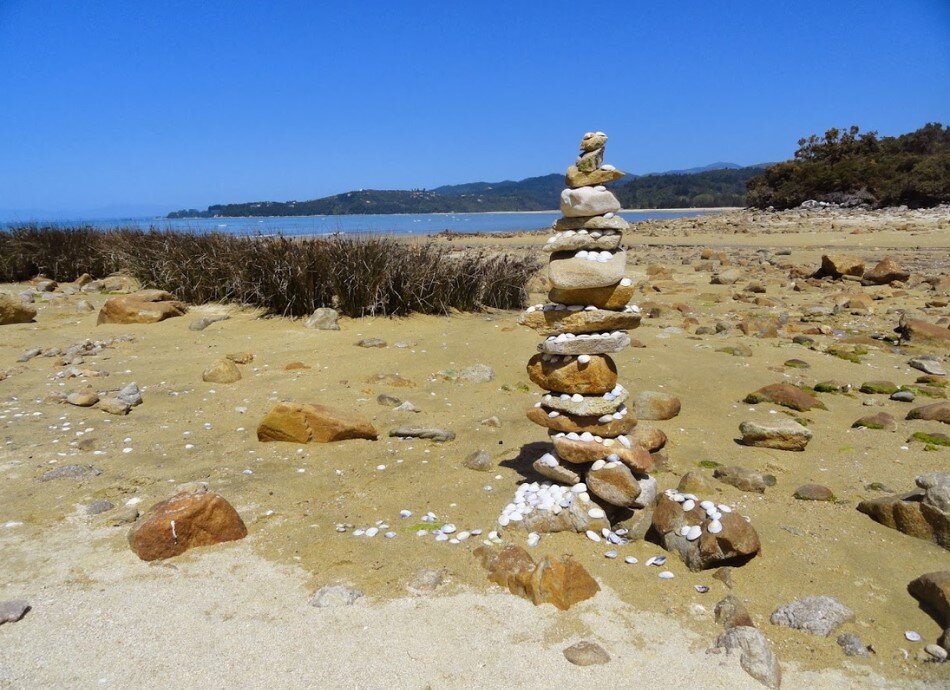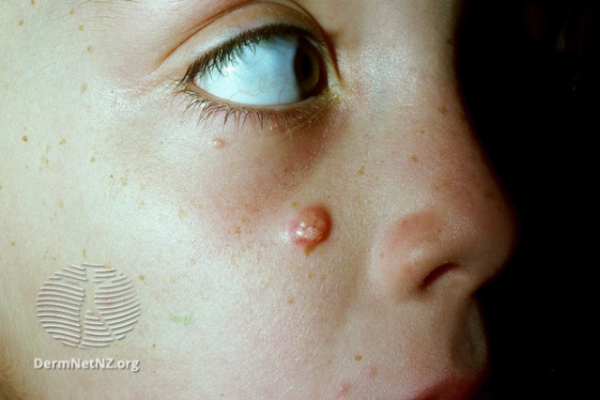We're aware of a problem when trying to use Zero Data to link to Healthify. Zero Data is managed by Health NZ and we are working with them to get this fixed.
Epidermoid cyst
Also known as epidermal cyst, sebaceous cyst, carbuncle cyst or keratin cyst
Key points about epidermoid cysts
- Epidermoid cysts are small cysts or lumps that develop just under the skin and are usually found on the face, neck or back
- At times, they can become infected. In this case, the lump becomes red and painful and you may need to see your doctor.
- If there is uncertainty about what a lump is, you should see your doctor.

They are usually painless, slow-growing, freely movable lumps; however, sometimes a cyst will become inflamed and tender. They usually form around a hair follicle, but can sometimes be triggered by skin trauma.
Image credit: DermNet NZ
Most epidermoid cysts are small, non-painful lumps just beneath the skin. Sometimes they can grow very large over a number of years. At times, they can become infected. In this case, the lump becomes red and painful and you may need to see your doctor.
If there is uncertainty about what a lump is, you should see your doctor.
In most cases, your doctor can diagnose this type of cyst by simply examining your skin. They tend to have a typical appearance including a small central point or opening. They sometimes contain a cheesy thick material that can be squeezed out through this tiny opening. However, a key feature of an epidermoid cyst is a layer of skin surrounding the cheesy material (called a capsule) which needs to be removed fully to prevent it reforming.
Occasionally, a biopsy may be needed to rule out other conditions. If you have multiple cysts, it may be a sign of other treatable conditions, eg, cystic acne, Gardner syndrome, Steatocystoma multiplex or other types of cysts.
Apps reviewed by Healthify
You may find it useful to look at the DermDiag app.
Epidermoid cysts aren't dangerous and, once the diagnosis has been confirmed, they can often be left alone. If they become red or swollen, you can try placing a warm moist cloth (compress) over the area.
Your doctor may be able to help if the cyst is painful or if there are cosmetic concerns. In these cases they may:
- Inject an inflamed cyst with a steroid medicine to reduce swelling.
- Drain the cyst with a small surgical incision. This is usually done is an abscess forms and may be combined with antibiotic treatment.
- Surgically remove large cysts, ones that are in an awkward position or cysts that keep getting infected.
Apps
Epidermoid and pilar cysts(external link) Patient Info, UK
Epidermoid cysts(external link)(external link) DermNet NZ
Cutaneous cysts(external link)(external link) MSD Consumer Information, NZ
Cutaneous cysts and pseudocysts(external link)(external link) DermNet NZ
Credits: Healthify editorial team. Healthify is brought to you by Health Navigator Charitable Trust.
Last reviewed:
Page last updated:





